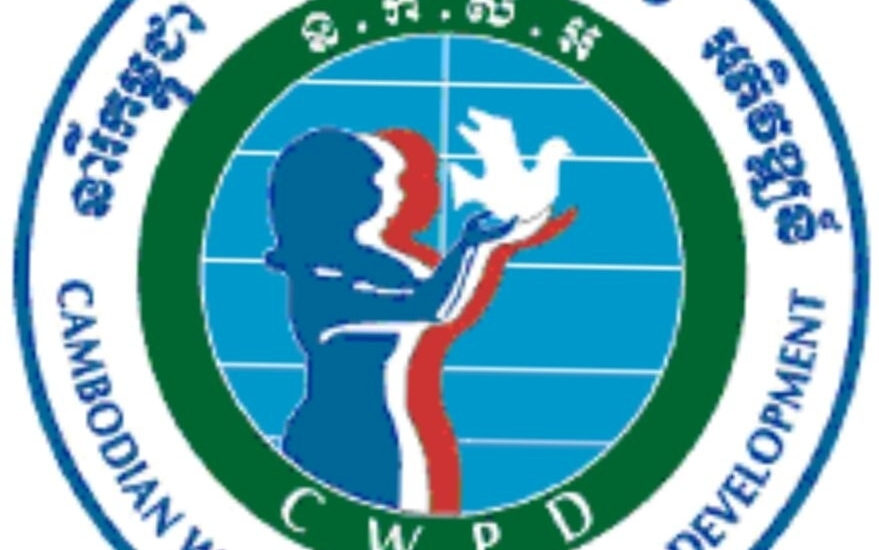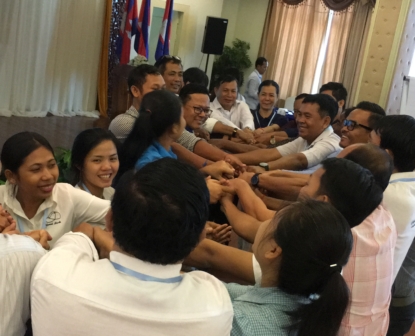Project
Improving SRH-HIV health outcomes of vulnerable Female Entertainment Workers
-
Amount Funded
87,686 EUROProject Duration
01 Apr 2018 - 31 Mar 2019 -
-
Lead organisation
Partners
MAMTA, India (also involved in M-health with Rumah Cemara)
-
The Cambodian Women for Peace and Development (CWPD) association takes its roots from the Women’s Association of Cambodia, a nationwide organisation, established in 1978. Based on its countrywide structure, the institution has successfully implemented various programmes familiar with poverty reduction and women empowerment. Women are the key players to be mentioned as educators, negotiators, facilitators and coordinators of the projects. Women are also the direct beneficiary and are able to educate or discuss with partners, friends and families effectively. Thus, a general congress was held in 1999, a new constitution was formulated, its organisational formation redefined, and major reforms in management was instituted and offered a new name to WAC, as Cambodian Women for Peace and Development (CWPD).
Vision: All people living in happiness, healthy, justice, peace, development, and respect for the equal rights of men and women.
Mission: Promote the status of women in Cambodia, building confidence in own capacity to become independent leaders who have access to equitable resources and interests from active involvement in social,cultural, economic, and political activities at national, subnational and international level.
-
Organisation
The Cambodian Women for Peace and Development (CWPD) association takes its roots from the Women’s Association of Cambodia, a nationwide organisation, established in 1978. Based on its countrywide structure, the institution has successfully implemented various programmes familiar with poverty reduction and women empowerment. Women are the key players to be mentioned as educators, negotiators, facilitators and coordinators of the projects. Women are also the direct beneficiary and are able to educate or discuss with partners, friends and families effectively. Thus, a general congress was held in 1999, a new constitution was formulated, its organisational formation redefined, and major reforms in management was instituted and offered a new name to WAC, as Cambodian Women for Peace and Development (CWPD).
Vision: All people living in happiness, healthy, justice, peace, development, and respect for the equal rights of men and women.
Mission: Promote the status of women in Cambodia, building confidence in own capacity to become independent leaders who have access to equitable resources and interests from active involvement in social,cultural, economic, and political activities at national, subnational and international level.
-
Project
The project titled Improving SRH-HIV health outcomes of vulnerable Female Entertainment Workers envisages the use of mobile technology, supported with community engagement and peer-led approaches to result in improved knowledge and service access. CWPD partners with MAMTA Health Institute for Mother and Child, based in New Delhi (India) to develop and implement the technology-based SRH/HIV convergence health and rights programme to reach vulnerable Female Entertainment Workers (FEWs) in Cambodia. This initiative is specifically focused on FEWs in the age group of 18-35 years in Phnom Penh, Cambodia. The project is an evidence based and peer driven application solution which aims at creating a sustainable impact at the level of the community and that of the health systems. CWPD envisions this as an opportunity to bring closer to home innovative and mobile-based interventions (non-traditional approaches) to motivate and engage with the vulnerable FEW communities for their improved SRH/HIV outcomes. MAMTA, having a technical support role, engages which has been recognised in South Asia region for their work on sexual reproductive health and rights of marginalised communities and their vast experience in system strengthening (nationally and internationally).
-
-
The project titled Improving SRH-HIV health outcomes of vulnerable Female Entertainment Workers envisages the use of mobile technology, supported with community engagement and peer-led approaches to result in improved knowledge and service access. CWPD partners with MAMTA Health Institute for Mother and Child, based in New Delhi (India) to develop and implement the technology-based SRH/HIV convergence health and rights programme to reach vulnerable Female Entertainment Workers (FEWs) in Cambodia. This initiative is specifically focused on FEWs in the age group of 18-35 years in Phnom Penh, Cambodia. The project is an evidence based and peer driven application solution which aims at creating a sustainable impact at the level of the community and that of the health systems. CWPD envisions this as an opportunity to bring closer to home innovative and mobile-based interventions (non-traditional approaches) to motivate and engage with the vulnerable FEW communities for their improved SRH/HIV outcomes. MAMTA, having a technical support role, engages which has been recognised in South Asia region for their work on sexual reproductive health and rights of marginalised communities and their vast experience in system strengthening (nationally and internationally).
-
The following results were shared as part of this project;
- The iSHE App was uploaded in play store (Android) for smartphones in early April 2019 to facilitate the App installation for the key populations.
- There was a 26% (1,542/6,000) download for the iSHE App in mobile phones and it was utilised to access health services in Phnom Penh.
- Fifty-one outreach workers involved in this project were able to collect baseline survey data after they attended the baseline survey training, held for three days in Phnom Penh Hotel, January 2019.
- A Certificate of Approval was granted by the Cambodia Research Ethical Committee for the baseline and outline survey on January 1st, 2019.
- The responses for the questionnaires in the iSHE App were shared to the HIV/AIDS-SRHR programme implementers and will support in developing the programme’s strategy.
- Health messages on T-Shirts and bags for Outreach Workers were done following national health promotion programmes.
- iSHE project strengthened the knowledge and skills of outreach workers in the technology of m-health and social media on HIV/AIDS prevention programme for global fund projects in Phnom Penh.
The project implementation was not complete due to some challenges that happened during implementation as highlighted below;
- A technical delay from MAMTA prolonged the finalising of the questionnaires on the mobile application, therefore, prolonging the start of the pilot for the project
- Delay in the training of Core Staff of CWPD and its network: This activity had to wait until the mobile App development was finalised by MAMTA.
- Issuing of the research protocol: This activity was late for around two months compared to the plan due to the time-consuming nature of reviewing submitted documents.
- The long time that the interviews took (from 40-50 minutes) therefore limiting the number of FEWs willing to accept or having to reschedule at a later time.
- The mobile nature of the rightsholders.
- Most FEWs have a smartphone with mostly iOS while this mobile App was developed with the Android system.
Read here a blog published on the Voice Website around the SRHR dialogues.
xxx
Female Entertainment Workers (FEWs) in Cambodia are at high risk when it comes to Sexual and Reproductive Health (SRH). Although there has been a huge decline in HIV infection rates among entertainment workers overall, some groups remain especially vulnerable. A study by the Integrated Biological and Behaviour Survey in 2016 showed HIV prevalence among Cambodian FEWs who have more than 2 sexual partners a week is 8.3%. In particular Cambodian women and girls working in streets and parks for sex-work are especially vulnerable to HIV. Access to contraceptive health, safe abortion services and advice are also inconsistent.
In January 2019, Cambodian Women for Peace and Development (CWPD) took another step forward with the project “Improving SRH-HIV health outcomes of vulnerable female entertainment workers”, by using cutting edge digital technology to improve knowledge, attitudes and practices amongst vulnerable women who are especially at risk from HIV and other sexually transmitted diseases. As the topic of SRHR (Sexual and Reproductive Health and Rights) is often considered a taboo in Cambodian culture, CWPD is arming women with knowledge and vital information about SHRH, including for example the location of health facilities when needed. CWPD has partnered with the MAMTA Health Institute for Mother and Child in New Delhi (India), to use its innovative iSHE application to achieve better outcomes for women in Cambodia. iSHE is an evidence-based and peer-driven mobile app designed to create a sustainable impact in communities. CWPD envisions this app as an opportunity to use innovative approaches and mobile based interventions to motivate and engage with vulnerable FEW communities.
Over 2 days, 50 outreach workers and 10 field staff from CWPD were trained on how to use the app as well how to measure its impact and its usefulness for FEWs. The training workshop for the outreach workers and 10 field staff from CWPD was extremely useful in discovering and fixing some technical problems identified, equipping CWPD staff with the skills to ensure the app was fully understood by participants in the program. These members were then at the forefront of disseminating the app and training FEWs on how to enjoy the features and benefits of the software, with a focus on crucial information on SRHR and medical help. They were also able to monitor the success of the app in improving education and health for the women who were involved in the programme by conducting surveys on the knowledge, behaviour and health of women before and after using the app.
6,000 female entertainment workers were set to be reached with the app over a period of three months. The project worked with women between the ages of 18 and 35 who have more than two sexual partners a week and own a smartphone. Based on the project’s results, CWPD believes the adoption of international collaboration and digital technology can have a powerful impact on the present and future lives of these women and their families.
- News




